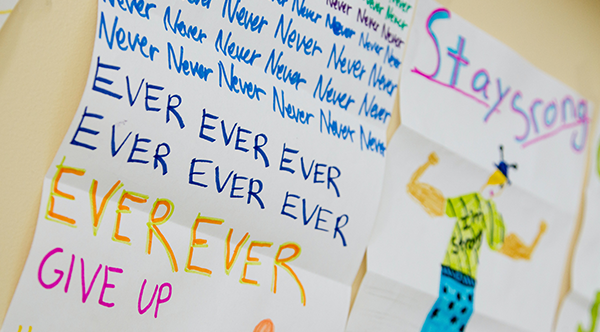Family Counseling Insights brought to you by Patricia McTague-Loft
Do you have a friend or maybe a colleague who just seems to have it all together? They take charge of situations with steady determination. When life inevitably knocks them down, they get up and carry on, with dignity and grace. They care about their family and friends, but they also know how to say “no” with confidence and cheerfulness.
Who are these saints, anyway, and how did they get that way?

It turns out that these kind of people probably had a lot going right for them in childhood. And I’m not talking about material or economic advantage or privilege. I’m talking about habits and upbringing that results in inner strength and confidence. Psychotherapist Amy Morin gave a TEDx talk — “The Secret of Becoming Mentally Strong” — which has been viewed 22 million times. Writing for CNBC, she says, “Mental strength requires you to pay attention to three things: the way you think, feel and act. Thinking big, feeling good and acting brave helps us grow our mental muscles. Of course, it takes practice, patience and constant reinforcement to get to a point where you’ll do these things naturally.”
The good news is that with some conscious effort, parents can successfully guide their kids toward developing these traits. “Many young people successfully achieve it [mental strength] over time,” she says. She then identifies several things mentally strong kids always do. Here are a few to think about with your children.
They Empower Themselves. A bit of well-known wisdom is the recognition that you cannot control events, but you can control your reaction to events. In fact, your reaction to life is the only thing you can truly control. In practical terms, this means that if someone’s else actions make you angry, then you are ceding them the power to control you. You can’t control how they act — but you can control your emotional reaction. Teaching your kids to control their emotions in response to other people’s actions — and even situations — is the first step toward their self-empowerment.
They Adapt to Change. Change is inevitable. Adapting to change is absolutely necessary to be happy. Morin advises naming your emotions as a good first step toward handling change with equanimity. “Unfortunately, most of us don’t spend enough time thinking about how we feel,” she writes. “In fact, even as adults, we tend to put more energy into fighting our emotions.”
“So when your kid is faced with a major change, have them talk elaborately about how they’re feeling. More importantly, help them find — and define — the right words to describe it (e.g., sad, happy, frustrated, nervous, eager).”
They Own Their Mistakes. People — not just kids — often have a difficult time taking responsibility for their mistakes. Kids may not own up to a mistake simply because they don’t want to be punished. Adults — with a sometimes dazzling display of creativity — often rationalize their mistakes and shift blame. In adulthood this is somewhat understandable because adult situations can be very complicated and go way beyond owning up to breaking a lamp. That’s why it’s so important to develop the habit of taking responsibility for your action at a young age and then making that habit a part of your character.
Owning your mistakes also helps develop another crucial interpersonal skill — the ability to make an apology. If you teach your child to clearly state what they did wrong, acknowledge how that action hurt another, pledge not to make that mistake again and then ask for forgiveness, your child will be equipped to make huge strides toward being mentally strong.
Read Morin’s other tips for developing mentally strong kids here. And watch her TEDx talk here.